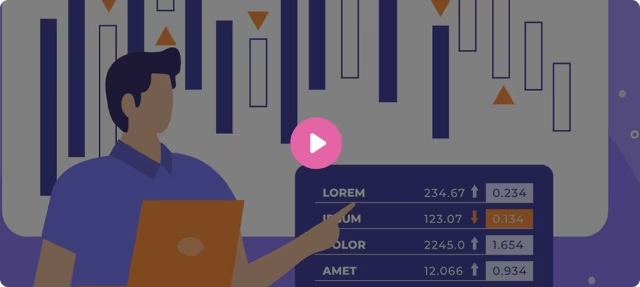 (1).png)

What Are Commodities?
Investment Basics
Commodities are the foundational building blocks of the global economy. They are natural resources or agricultural products that are standardized and interchangeable, traded across markets worldwide. From the oil fueling transportation to the wheat feeding populations, commodities are at the core of trade, production, and consumption.
Unlike financial instruments such as stocks or bonds, commodities are tangible goods — something that can be touched, stored, and delivered. Their value is influenced by global economic activity, geopolitical events, and even the weather. In Pakistan, commodity trading has been formalized through institutions like the Pakistan Mercantile Exchange (PMEX), offering local investors access to global commodity markets.
What Are Physical Commodities?
Physical commodities are actual items that can be handled or delivered. These are broadly categorized as follows:
- Agricultural Commodities: Wheat, rice, cotton, corn, sugar, tea — often vital exports for countries like Pakistan.
- Energy Commodities: Crude oil, natural gas, gasoline, coal — essential for power generation, transport, and industrial output.
- Metal Commodities: Gold, silver, copper, aluminum, platinum — used in everything from electronics to jewelry.
- Livestock and Meat: Live cattle, lean hogs — critical for food production chains.
These commodities form the basis of everyday life, and their prices directly impact both consumers and producers.
Key Characteristics of Commodities
- Fungibility: One unit of a commodity is equivalent to another of the same grade. A ton of wheat of a certain grade is indistinguishable from another ton.
- Standardization: Commodity exchanges ensure that all traded commodities meet certain quality and quantity specifications.
- Volatility: Commodity prices are highly sensitive to supply-demand dynamics, seasonal cycles, and global events.
- Global Pricing: Commodities are traded globally and typically priced in US dollars, which impacts countries with volatile currency rates like Pakistan.
- Tangible Asset: Commodities offer physical ownership, unlike digital-only assets like equities.
Fundamentals of Commodity Pricing
The price of a commodity is determined by a mix of economic, political, and environmental factors. Key drivers include:
- Supply and Demand Dynamics: A poor harvest in a major wheat-producing country or an OPEC production cut can drastically shift global prices.
- Inventory Levels: Higher stockpiles of commodities like crude oil can lower prices, signaling oversupply.
- Currency Movements: Since most commodities are traded in USD, a depreciation of the Pakistani rupee increases the local cost of imports.
- Speculative Activity: Large positions by hedge funds or institutional traders can influence short-term price trends.
- Government Policies: Subsidies, tariffs, and quotas can either support or distort market equilibrium.
Main Types of Commodities
| Category | Examples | Importance to Pakistan |
|---|---|---|
| Agricultural | Cotton, wheat, rice, sugar | Major part of Pakistan’s exports |
| Energy | Crude oil, natural gas, coal | Pakistan imports large volumes of oil |
| Metals | Gold, silver, copper | Hedge against inflation, used in trade |
| Livestock | Live cattle, poultry | Key to food industry |
At PMEX, investors can trade a variety of commodities like gold, silver, crude oil, and agricultural contracts such as wheat and cotton, providing access to both domestic and international pricing mechanisms.
Which Commodities Are Traded in the World?
Commodities are traded both on spot and derivative markets across major exchanges such as:
- New York Mercantile Exchange (NYMEX): Crude oil, gas, precious metals
- London Metal Exchange (LME): Base metals like copper and aluminum
- Chicago Board of Trade (CBOT): Grains and soybeans
- Pakistan Mercantile Exchange (PMEX): Gold, silver, crude oil, cotton, sugar, wheat, palm oil
Popular globally traded commodities include:
- Energy: Brent Crude, WTI Crude
- Metals: Gold, Silver, Copper
- Agri-commodities: Soybeans, Corn, Coffee, Cocoa
Factors Influencing Commodity Prices
- Weather Events: Droughts or floods can devastate agricultural yields, pushing prices up.
- Geopolitical Tensions: Oil prices often spike during conflicts in the Middle East.
- Macroeconomic Trends: A booming economy increases demand for energy and metals.
- Speculative Behavior: Traders buying or selling based on sentiment can cause short-term swings.
- Technological Advancements: New mining or farming technologies can increase supply.
- Government Policy: Bans, subsidies, or quotas affect both supply and demand.
For example, in 2022, the Russia-Ukraine conflict caused global wheat prices to surge as the region is a major wheat exporter. This directly affected countries like Pakistan that rely on imported wheat.
Commodities in the Pakistani Context
- Cotton: A vital export crop and input for Pakistan’s textile industry.
- Wheat: Strategic commodity affecting food security.
- Gold: Viewed as a safe haven during inflation and rupee devaluation.
- Crude Oil: One of the largest components of Pakistan’s import bill.
PMEX allows individual investors to trade commodities using small contracts called micro and mini lots, reducing the entry barrier and increasing financial inclusion.
Quick Recap
- Commodities are tradable natural or agricultural goods that are standardized and fungible.
- They are categorized into agricultural, energy, metals, and livestock commodities.
- Prices are influenced by supply and demand, weather, geopolitics, speculation, and currency fluctuations.
- Commodities are traded globally on exchanges like NYMEX and LME, and locally on PMEX in Pakistan.
- Key examples in Pakistan include cotton, wheat, gold, and crude oil, which impact inflation, trade, and production.
- PMEX allows investors to trade in commodities using small, regulated derivative contracts.
- Commodity investing offers portfolio diversification, hedging against inflation, and exposure to global markets.
Get Started with Azee Securities
Ready to start your investment journey with Azee Securities? Open a Stock Trading Account and gain access to the Pakistan Mercantile Exchange (PMEX). Let Azee Securities help you make informed decisions. Our expert advisors, advanced trading platform, and real-time market data ensure you stay ahead of the curve.
Azee Securities Limited
Member Pakistan Stock Exchange | PMEX | NCCPL | CDC
SECP Registered & Regulated